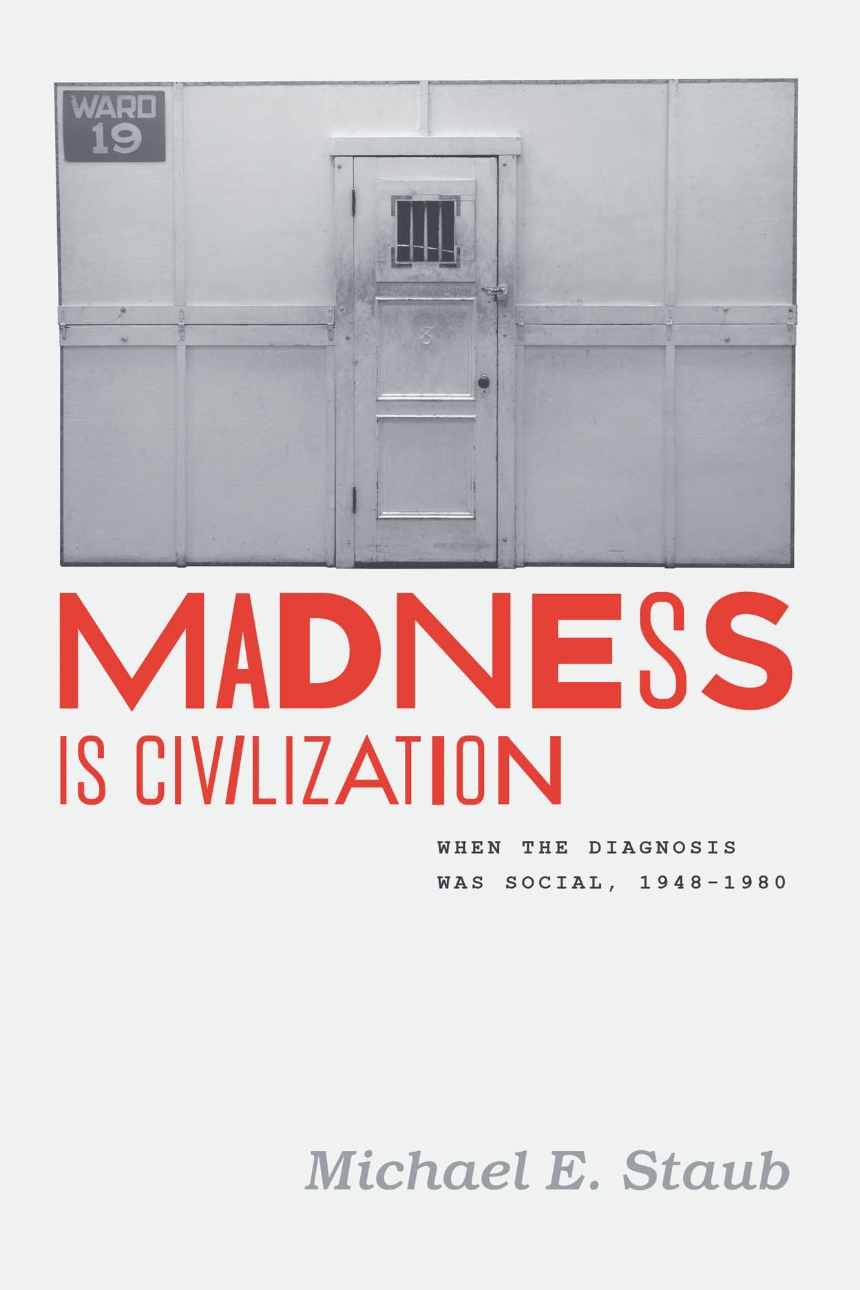Madness Is Civilization
When the Diagnosis Was Social, 1948-1980
Madness Is Civilization
When the Diagnosis Was Social, 1948-1980
In the 1960s and 1970s, a popular diagnosis for America’s problems was that society was becoming a madhouse. In this intellectual and cultural history, Michael E. Staub examines a time when many believed insanity was a sane reaction to obscene social conditions, psychiatrists were agents of repression, asylums were gulags for society’s undesirables, and mental illness was a concept with no medical basis.
The first study to describe how social diagnostic thinking emerged, Madness Is Civilization casts new light on the politics of the postwar era.
Reviews
Table of Contents
List of Figures
Introduction
Part I: When the Diagnosis Was Social
Chapter 1: Society as the Patient
Chapter 2: Enough to Drive Anybody Crazy
Chapter 3: Suffering from Contingencies
Chapter 4: The Therapeutic State
Part II: The Revolution in Feeling
Chapter 5: The Insanity Trip
Chapter 6: Person Envy
Chapter 7: A Fashionable Kind of Slander
Epilogue
Acknowledgments
Notes
Index